Eye vitamins are supplements that support and improve your ability to see. Getting the right level of vitamins and minerals for your eyes can help maintain your vision as you get older.
Large, multi-site clinical trials have demonstrated that the right eye vitamin can prevent macular degeneration in adults over 50 and retain the same quality of eyesight that you had when you were young.
Our research team has evaluated the best eye supplements out there according to the latest clinical research recommendations and found your best options for protecting and preserving your eyesight as you get older.
Our advisory panel and our research team rank the best health products and supplements based on performance, label accuracy, and the efficacy of the ingredients in the products.
- Best Overall: VitaBalance Lutenol
- Best for eye fatigue: Performance Lab Vision
- Best with zinc: Vision Support + by Nuzena
- Best for smokers: Bausch+Lomb PreserVision AREDS 2
- Focus Select
Research
Rankings
Last updated: November 8, 2022
Eye vitamins considered: 25
Hours of research: 48
Experts reviewed: 12
Scientific papers referenced: 23
| IMAGE | PRODUCT | |
|---|---|---|
Best Overall 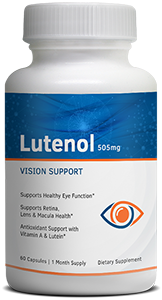 | 1. VitaBalance Lutenol
| View Latest Price → |
Best for eye fatigue 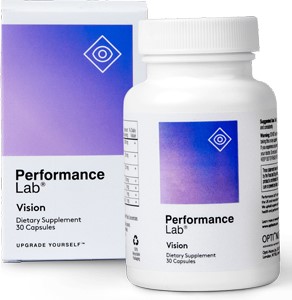 | 2. Performance Lab Vision
| View Latest Price → |
Best with zinc 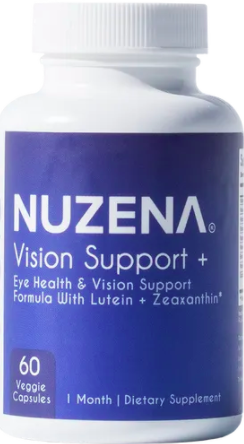 | 3. Vision Support + by Nuzena
| View Latest Price → |
Best for smokers 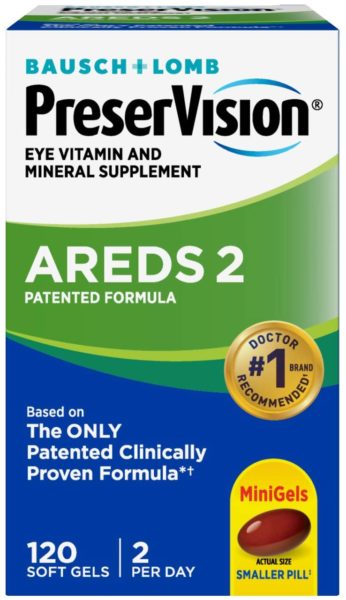 | 4. Bausch+Lomb PreserVision AREDS 2
| View on Amazon → |
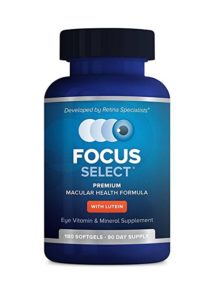 | 5. Focus Select
| View on Amazon → |
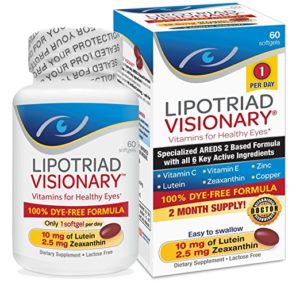 | 6. Lipotriad Visionary
| View on Amazon → |
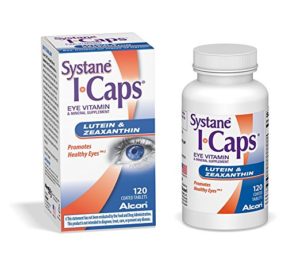 | 7. Systane ICaps
| View on Amazon → |
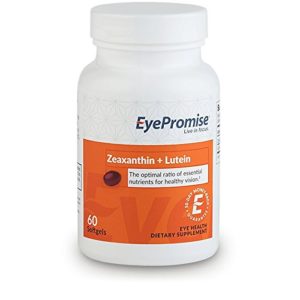 | 8. EyePromise Zeaxanthin + Lutein
| View on Amazon → |
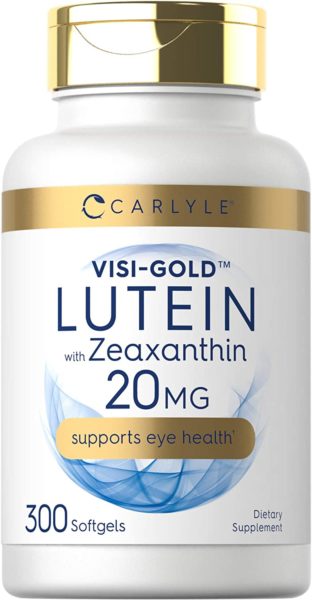 | 9. Carlyle Visi-Gold Zenwise
| View on Amazon → |
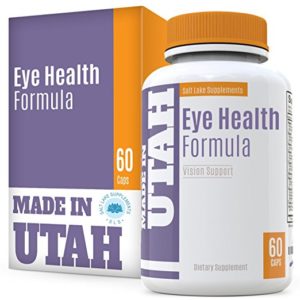 | 10. Made in Utah Eye Health Formula
| View on Amazon → |
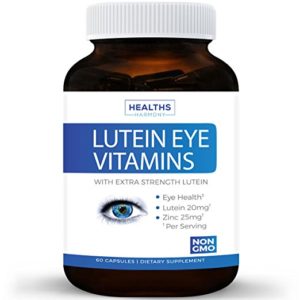 | 11. Healths Harmony Lutein Eye Vitamins
| View on Amazon → |
1. VitaBalance Lutenol

Click here for the lowest price
Don’t let impaired vision slow you down. Whether you’re dealing with age-related macular degeneration, glaucoma, or poor cataracts, use VitaBalance Lutenol to give your eyes the nutrients they need to stay healthy.
This formula contains the powerful antioxidant, Lutein, to protect your eyes from light exposure, and Zeaxanthin to protect the retina from light damages, as well as zinc and vitamins A, C, and E to protect, strengthen, and repair your eyes.
Together, it’s the most potent formula we’ve seen for your eyes—supporting healthy eye function and improving retina, lens and macula health.
That’s probably because Lutenol was developed in response to scientific research into the natural ingredients that improve eye health and function.
All natural. Made in an FDA-registered facility that follows GMP guidelines.
The all-around eye vitamin winner of 2023.
Click here for the lowest price
2. Performance Lab Vision

Click here for the lowest price
Performance Lab Vision aims to improve macular health, improving the resolution of your eyesight, boosting night vision and aiding hand-eye coordination.
It contains scientifically backed ingredients such as Lutein and Zeaxanthin; when combined together, these two ingredients have been found to increase macular pigment levels and protect the eyes from harmful blue light (from digital devices such as telephones, tablets, laptops) and oxidation
The manufacturers also claim that it may also help to reduce eye fatigue and screen-related eye strain, a big problem for a lot of us in this 24/7 switched-on world.
3. Vision Support + by Nuzena

Click here for the lowest price
Nuzena is a new, premium supplement line famous for its potent concentrations.
Taking a closer look into the Vision Support + formula we were pleased to find that it included all of the key antioxidant ingredients that you’d expect to see in an eye health supplement — a healthy dose of Lutein, Zeaxanthin, and Quercetin.
Where Nuzena starts to separate itself from some of the other supplements we’ve reviewed is in the supporting ingredients. The formula also contains a solid base of Vitamins A, C, D, and the B complex, as well as trace minerals such as Magnesium, Zinc, and Selenium — really great to see.
Nuzena claims that Vision Support + will help users support macular health and help provide support for AMD (Age related Macula Degeneration). Looking at the ingredients and some of the scientific studies supporting them we think those claims seem reasonable.
Solid choice.
4. Bausch+Lomb PreserVision AREDS 2
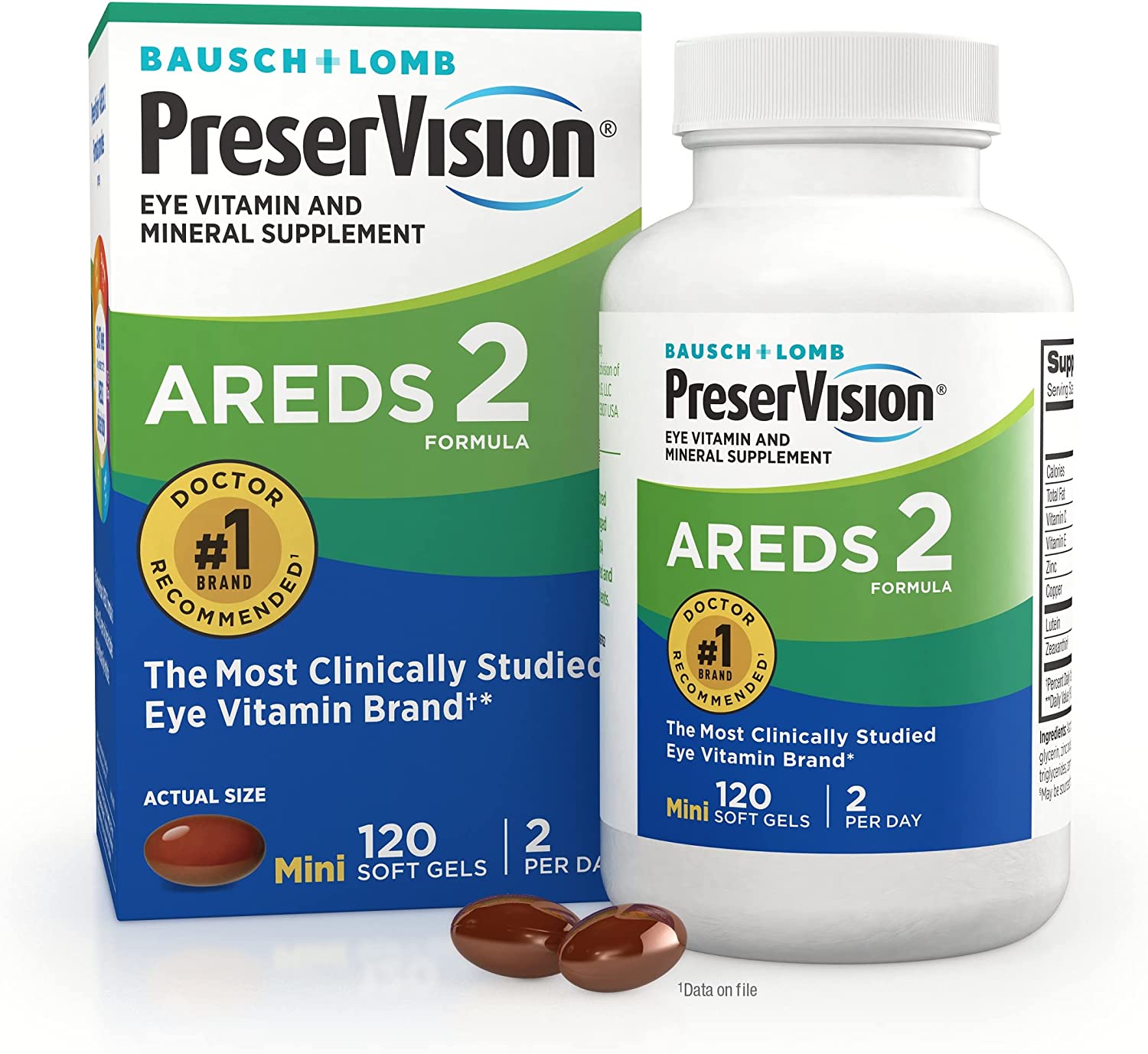
Bausch+Lomb PreserVision is an eye vitamin that carries the precise formulation tested in the AREDS 2 clinical trial that was proven to substantially reduce the risk of macular degeneration in adults over 50.
This advanced formula follows the scientific prescription to a T, with lutein and zeaxanthin replacing the beta-carotene in the original AREDS formulation. It’s a good choice if you want to protect your eyesight as you get older.
5. Focus Select
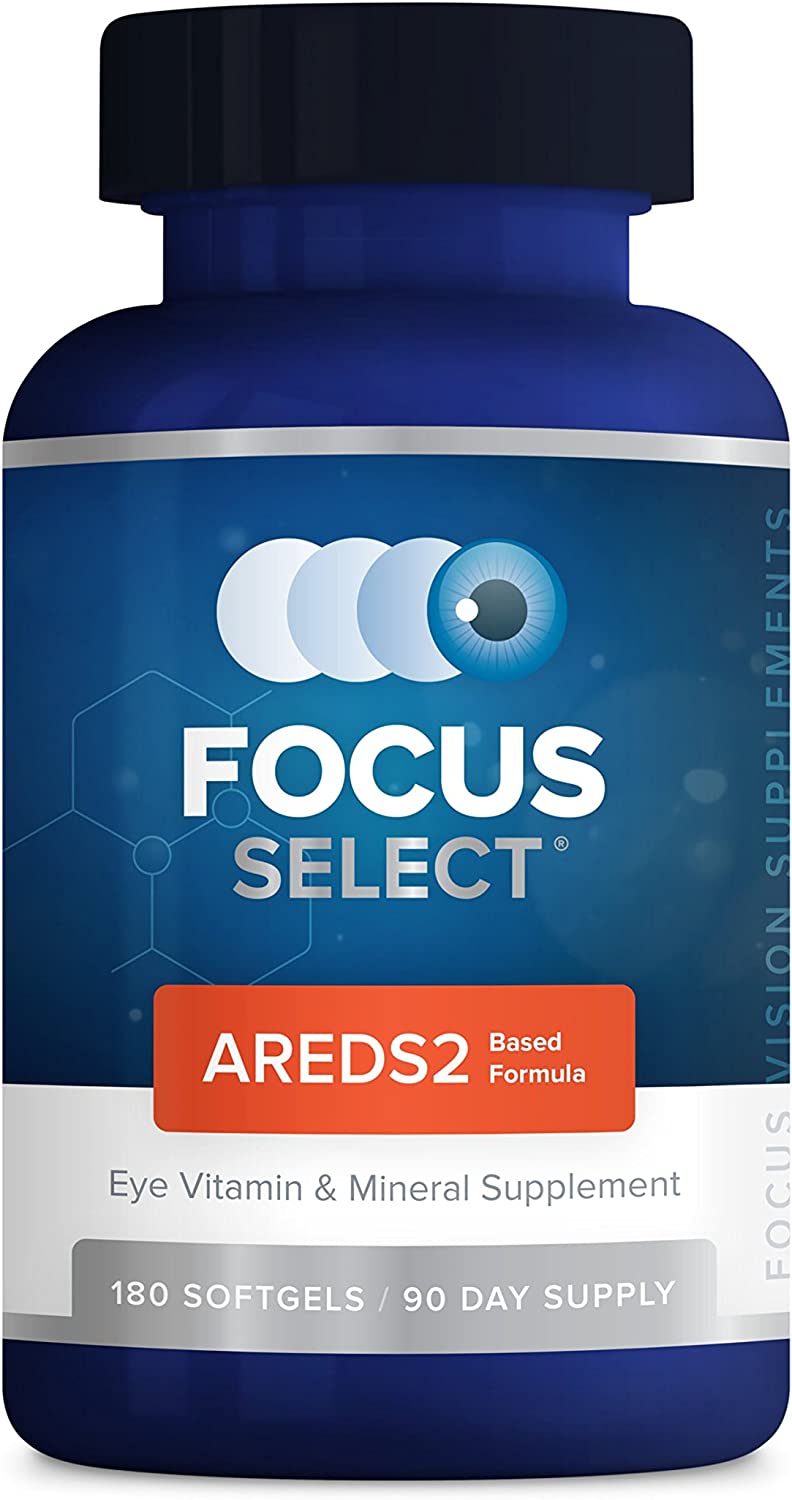
Focus Select is a nearly direct reproduction of the AREDS 2 formula and is intended to be taken twice per day.
While its copper content is just a touch lower than it ought to be, this is about the only flaw you can find with this eye vitamin. It’s got all the right ingredients and doesn’t go beyond what’s necessary for optimal eye health in old age.
6. Lipotriad Visionary
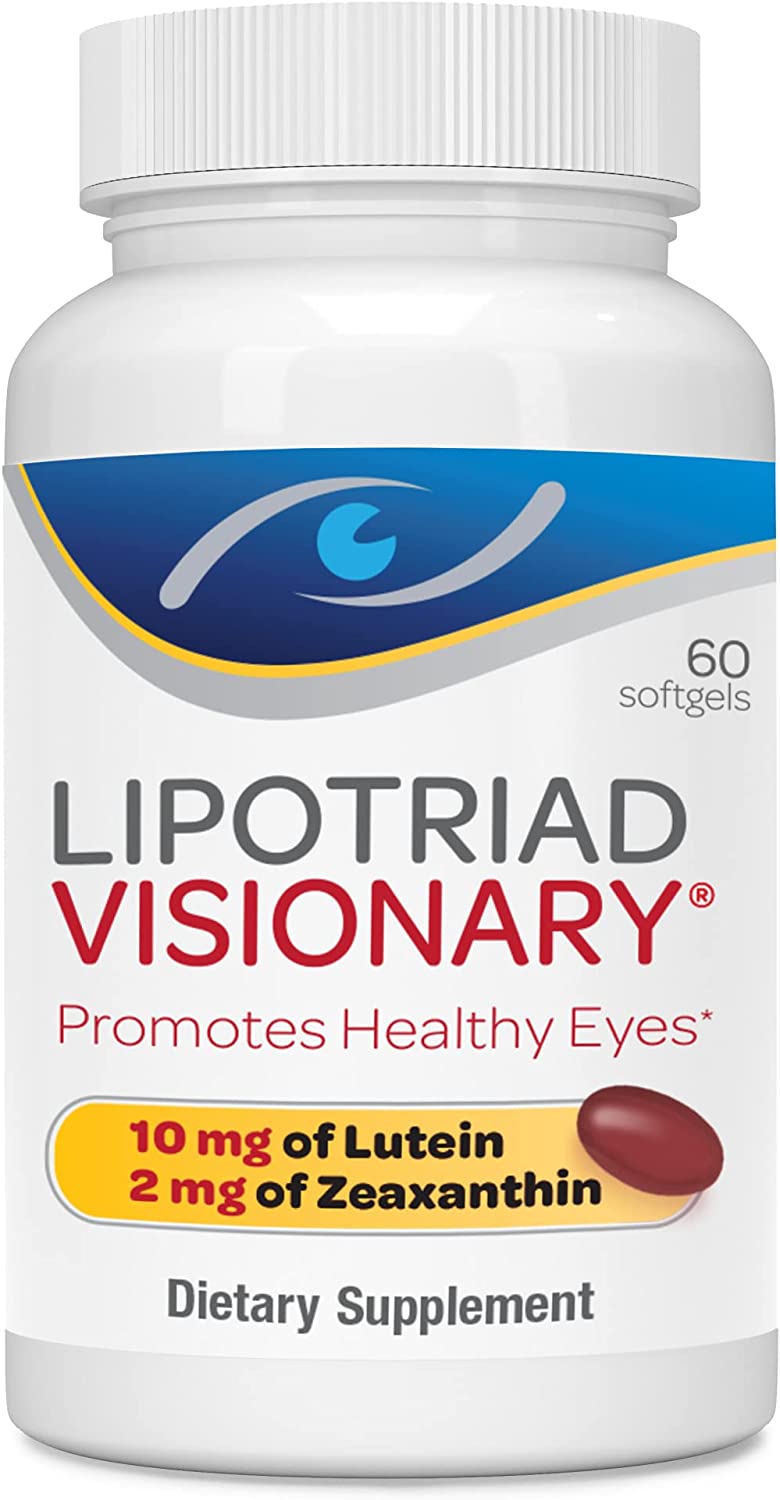
Lipotriad Visionary is an eye vitamin that’s well-suited for people who don’t want any artificial coloring agents or fillers in their eye vitamin. It’s got just the ingredients that work, and nothing extra.
It follows the AREDS2 trial recommendations, though its vitamin C content is far below the clinically effective dose, even if you take two servings per day.
If your dietary vitamin C content is high, this might not be an issue. The zeaxanthin content, however, is excellent compared to many other supplements on the market, which lands it high in the rankings.
7. Systane ICaps
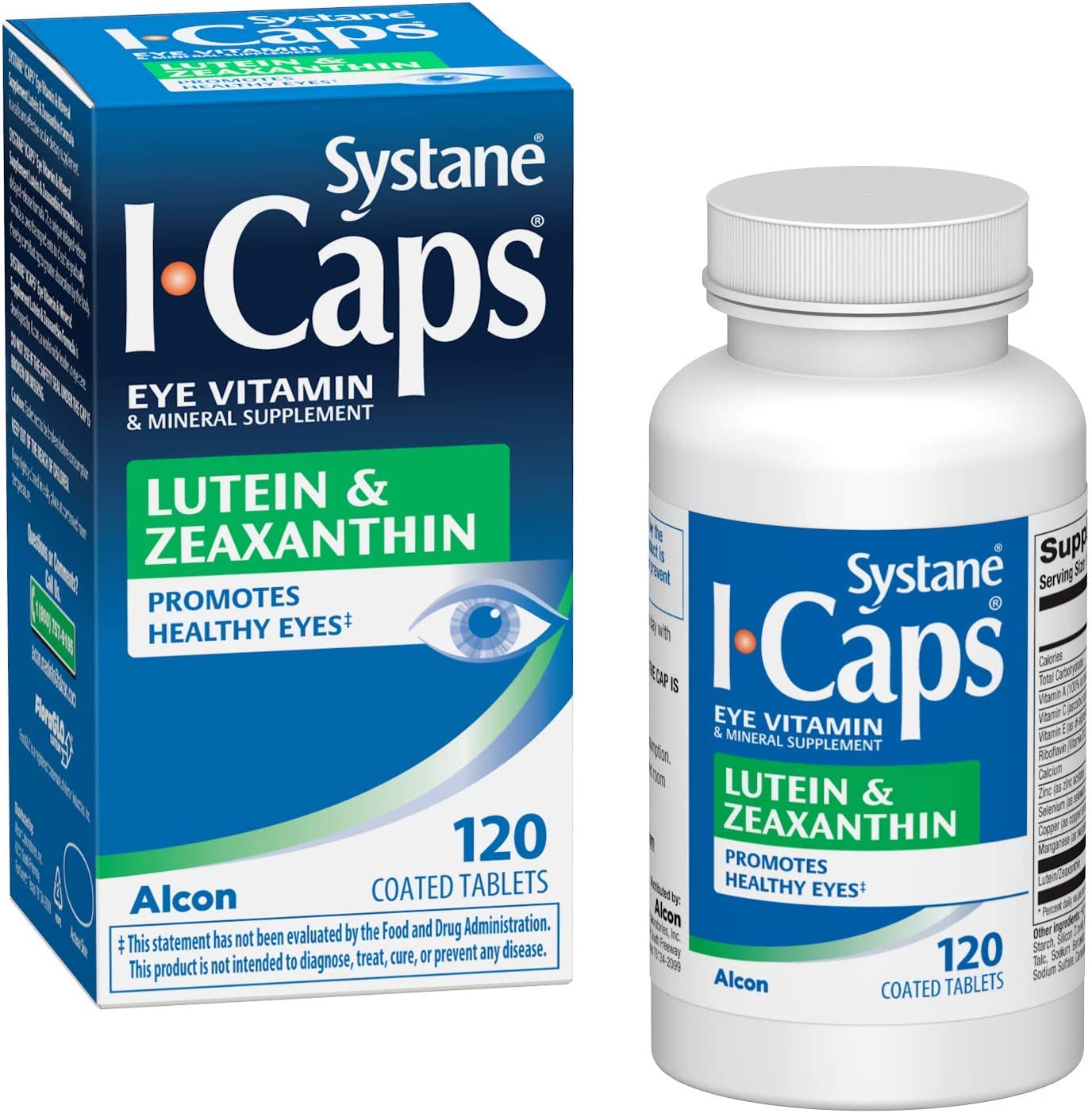
Systane ICaps is an evidence-based eye vitamin that goes beyond the basic clinical trial recommendations and includes additional trace elements like manganese and selenium.
It’s a modified version of the original AREDS formula, which used beta-carotene instead of lutein and zeaxanthin.
Because of the beta-carotene content, cigarette smokers should opt for a different supplement, but if you want additional vitamins and minerals that could support proper eye function, it’s a good choice.
8. EyePromise Zeaxanthin + Lutein
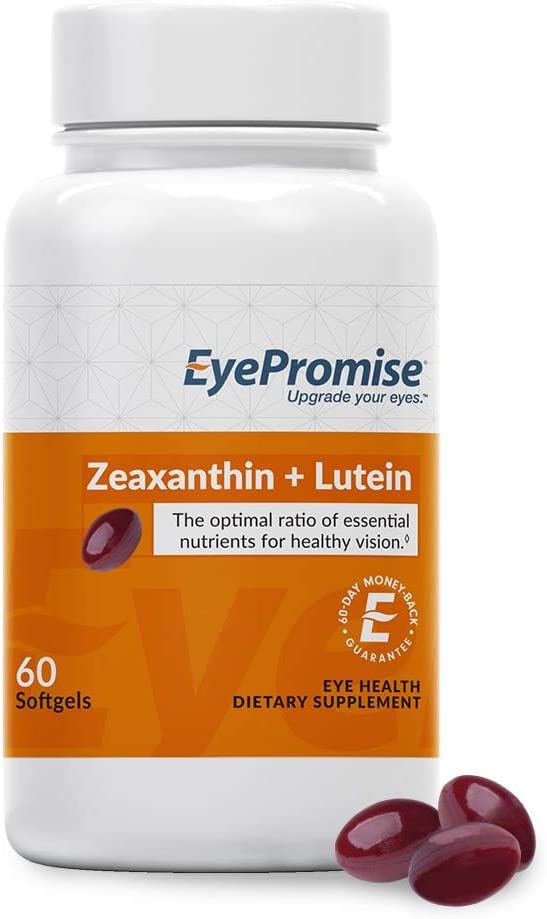
EyePromise Zeaxanthin + Lutein is a supplement that consists solely of zeaxanthin and lutein in equal doses of 10 mg per serving.
It’s a solid choice if you really want the highest zeaxanthin content that you can get, as it has up to five times the dosage of many other eye vitamins on the market.
9. Carlyle Visi-Gold Zenwise

Carlyle makes a lutein supplement that is sourced from natural materials. The lutein and zeaxanthin content is solid, at 20 mg and 1 mg per serving, respectively.
With one capsule in the morning and one in the evening, you’d easily hit the optimal intake of these vitamins for eye health.
10. Physician’s Choice Eye Health
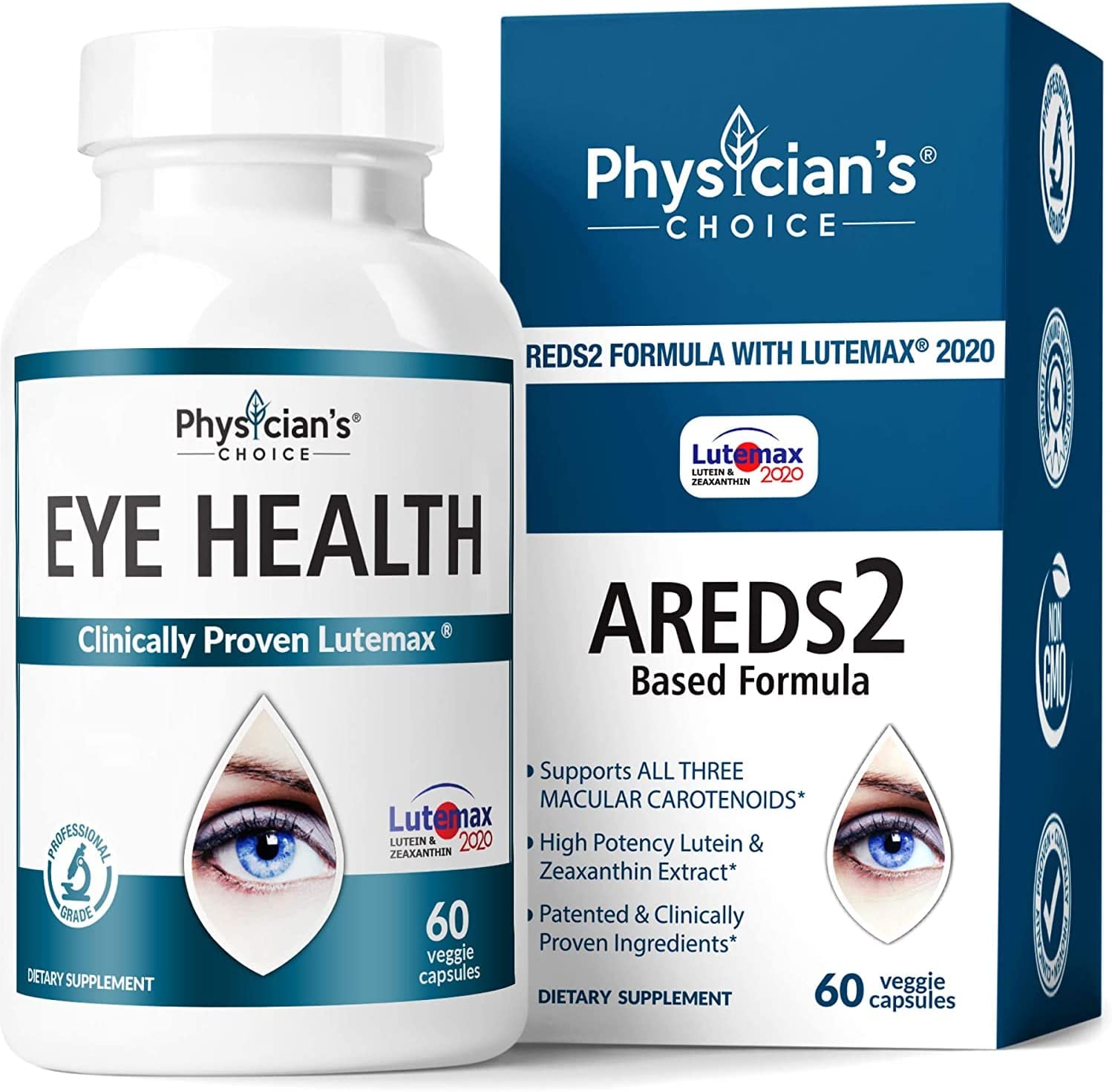
Physician’s Choice employs key compounds from the vaunted AREDS2 study, plus some added herbal extracts from black pepper, bilberry, and grape seed extract.
The dosage of the core ingredients is solid, and the black pepper extract should help with bioavailability, but the utility of some of the other herbal ingredients isn’t quite as clear.
It’s a decent pick, but gets outclassed by some of its competitors.
Category winners
Best eye vitamins overall: VitaBalance Lutenol
VitaBalance Lutenol contains all of the essential compounds for eye health, including both lutein and zeaxanthin. These compounds, alongside a potent B-complex vitamin blend, make it a great overall pick for eye health.
Best eye vitamins with zinc: Vision Support + by Nuzena
Nuzena’s eye vitamin features zinc oxide alongside other critical trace minerals for vision, including copper, chromium, and selenium. The inclusion of copper alongside zinc is especially helpful, because too much zinc can impair your body’s ability to absorb copper if your intake is low.
Best eye vitamins for smokers: Bausch+Lomb PreserVision AREDS 2
Smokers and former smokers should opt for an eye vitamin based on the AREDS2 formulation, which swaps out beta-carotene (a form of vitamin A) to reduce cancer risk. Bausch+Lomb follows this formulation closest, making it the optimal pick.
Best eye vitamins for older adults: VitaBalance Lutenol
VitaBalance Lutenon includes all of the ingredients recommended by the latest science on eye health. It includes both antioxidants to protect the eye as well as trace minerals used in enzymes critical for ocular function.
Best eye vitamins for eye fatigue: Performance Lab Vision
Performance Lab Vision includes several compounds to reduce eye fatigue caused by blue and ultraviolet light, including lutein, zeaxanthin, and astaxanthin. These could help prevent oxidative damage and ocular fatigue, especially in people exposed to a lot of screen time or time outdoors.
Best eye vitamins for macular degeneration: Bausch+Lomb PreserVision AREDS 2
If you already have macular degeneration, you’re a prime candidate for an eye vitamin based on the AREDS2 formula. It’s most effective at slowing down the progress of macular degeneration, and Bausch+Lomb’s eye vitamin is the highest-fidelity replication of what the original research used.
Who should buy eye vitamins?
Eye vitamins are in a relatively small group of supplements that have been studied exhaustively in large, multi-site clinical studies and been proven effective. They’re great for the following groups:
Older adults who want to preserve their vision as they age. Eye function is a major victim of aging, but eye vitamins can preserve ocular health. They provide specific nutrients needed by enzymes in your eyes to function properly, and they work best when taken before serious ocular health degeneration has occurred, so eye vitamins are a great addition to your supplementation regimen if you’re getting older.
People at risk for macular degeneration. If you have a history of macular degeneration in your family, or have any of the other risk factors for macular degeneration (which include smoking, high blood pressure, obesity, and heart disease), you should definitely take an eye vitamin. They’ve been clinically proven to slow the progress of macular degeneration, so they’re a must-have.
People over 50. While younger people don’t need to worry about taking an eye vitamin just yet, once you are age 50, taking an eye vitamins is a very good idea if you are looking to preserve your visual acuity, since the risk of age-related vision degeneration increases dramatically after age 50.
How we ranked
For our eye vitamin rankings,we had a plethora of scientific research to refer to when evaluating the quality of specific formulations. We used clinical research findings to develop the following ranking criteria:
Proven ingredients from the AREDS and AREDS2 studies. These two studies proved the efficacy of several key ingredients in an eye vitamin: specifically, beta carotene, vitamin C, vitamin E, zinc, copper, lutein, or zeaxanthin.
There are other vitamins, minerals, and supplements that more preliminary research has suggested might help protect your eyes and your visual acuity as well, but the AREDS ingredients are the gold standard. As such, we only included eye vitamins in our list if they included at least some of the AREDS ingredients.
Compounds delivered at appropriate dosage. We also evaluated the dosage of the active ingredients, comparing them to the gold standard formulations used in clinical trials. The closer the match, the better the product in question scored.
Preference for lutein and zeaxanthin instead of beta-carotene. We also looked specifically to see whether an eye vitamin chose to employ beta-carotene or lutein plus zeaxanthin.
Earlier versions of research-grade eye vitamins used beta-carotene, which was quite effective.
However, public health researchers found that beta-carotene increased the risk of cancer in smokers—the antioxidant effect interacts with the carcinogens in cigarette smoke.
As such, later versions use lutein and zeaxanthin instead, which is still effective but is safe for smokers.
Eye vitamins that are safe, even for smokers. While this beta-carotene / lutein+zeaxanthin distinction doesn’t matter if you aren’t a smoker, we wanted our top-rated supplement to be something that anyone could take to sustain good vision in old age, even if they do smoke.
As such, beta-carotene based formulations scored lower than ones that used the more modern lutein and zeaxanthin combination.
No binders, fillers, or added junk. Finally, we evaluated supplements on their overall purity and ingredient design. Products that had excessive binders, fillers, and excipients saw a decrease in their score, while products with a clean, minimal, and effective formulation were ranked highly.
After sorting the remaining products by overall score, we had our final rankings of the top eye vitamins on the market. These are your best bet if your are looking for a supplement to preserve your vision as you get older.
FAQ
Q: What are the most important eye vitamins?
A: When it comes to ingredients, there is no denying that the critical ingredients in an eye vitamins are vitamins C and E, the minerals copper and zinc, and beta carotene or its derivatives.
The antioxidant ability of vitamins C, E, and beta carotene-related compounds appear to play a role in preventing macular degeneration, which may indicate that an inflammatory process is at the heart of macular degeneration related vision loss.
Beta carotene and the related compounds lutein and zeaxanthin may be linked to slowing or preventing cataracts through different mechanisms (1).
The mineral ingredient zinc also exerts a clear benefit, because variants of eye vitamins that do not have zinc in them do not perform as well as those that do have zinc.
You’ll find many formulations of eye vitamins on the market that have other ingredients in them, such as omega 3 fatty acids from fish oil, or herbal extracts that are thought to improve vision. However, these ingredients are of secondary importance.
Q: What is an AREDS vitamins?
A: AREDS is an acronym for ‘Age-related eye disease study,’ which was a major initiative funded by the National Institutes of Health to investigate the progression of some of the biggest sources of vision loss later in life, including cataracts and macular degeneration.
As part of this study, researchers incorporated a large clinical trial that tested the effects of an eye vitamin formulation on the progression of macular degeneration.
The researchers hypothesized that a specific vitamin formulation would help slow or prevent macular degeneration, and the results proved them right.
After the researchers compared eye health in the people who took the eye vitamin for five years to the group of people who took a placebo pill for five years, the eye vitamin group had a significantly smaller chance of progression of macular degeneration.
An eye vitamin that follows this original formulation is called an ‘AREDS’ vitamin, because it uses the same ingredients used in the original study.
Q: What is AREDS2?
A: AREDS2 was a follow-up study to AREDS (see above) which tested the effect of several changes to the eye vitamin formulation.
The biggest change was substituting beta carotene with lutein and zeaxanthin, because beta carotene might increase the risk of cancer in smokers. Again, an eye vitamin that uses this new, improved formula (which was also successful at slowing or preventing macular degeneration) is called an ‘AREDS2 eye vitamin’.
Q: What do eye vitamins do?
A: Eye vitamins help to preserve your vision as you get older. They are thought to work by providing your body with antioxidants to prevent damage to your ocular tissue, and by providing your body with essential minerals that play a role in creating enzymes that help with ocular function.
Though the exact mechanisms responsible for the effects of eye vitamins are not fully understood, the strength of their benefits are—if you want to prevent vision loss as you get older, eye vitamins are a great way to do it.
Q: What are the best eye vitamins for macular degeneration?
A: If you have macular degeneration and want to slow its progression, or if you know you are at risk for macular degeneration and want to decrease the chance that you get it, you should get an eye vitamin that follows the AREDS or AREDS2 formulation.
These were major clinical trials that demonstrated the efficacy of a specific eye vitamin formulation on slowing and preventing macular degeneration. If you are a current or former smoker, you should definitely opt for the AREDS2 formulation; if you’ve never smoked before, the original AREDS formulation is fine, but AREDS2 is generally preferable.
Q: What vitamins help with dark under eye circles?
A: If you have dark circles under your eyes, an eye vitamin isn’t going to help much—under eye bags and darkness is a skin problem, while eye vitamins are designed for ocular health.
Instead, try an under eye cream, especially one with retinol in it. Retinol-based eye creams can help reverse the damage caused by aging and sun exposure, which is at the root of dark circles and baggy skin under your eyes.
Related articles
Recap
Eye vitamins should be a central part of your supplementation routine if you are over 50.
The high rate of vision loss in older adults, combined with the huge detrimental impact on quality of life that comes along with losing your vision, means you should be doing everything you can to preserve your eyesight as you get older.
Look for an eye vitamin that follows the ingredients most effective in clinical research: vitamins C & E, zinc, copper, lutein, and zeaxanthin. These are the most important vitamins for protecting your vision.
If you use tobacco, you should be particularly careful not to take an eye vitamin that contains beta-carotene. Plenty of better alternatives out there use lutein and zeaxanthin.
Fortunately, the reduction in risk for vision loss is substantial when you take the right eye vitamin at the right dosage, so you can look ahead to clear vision in old age.
For BodyNutrition‘s #1 eye vitamin recommendation, click here.